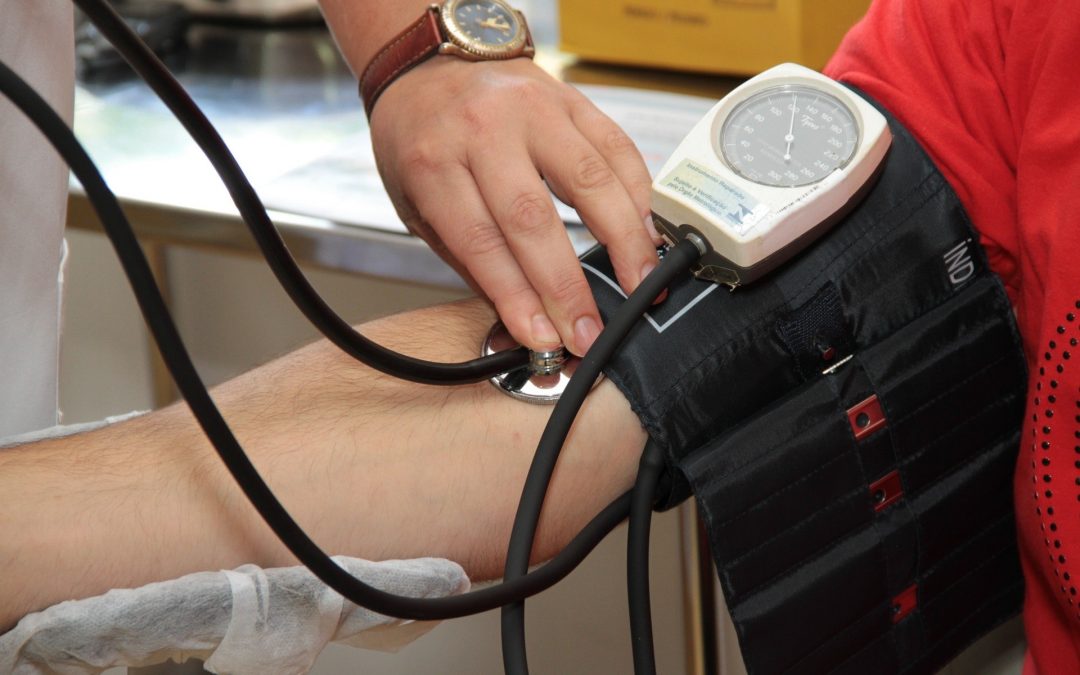Blood pressure is the amount of exerted force pushed against the walls of the arteries as blood flows through them. [bctt tweet=”Most people with high blood pressure (also known as hypertension) will not experience any notable symptoms. For that reason, it’s often referred to as a silent killer.” via=”no”] If the hypertension is not controlled, the excess pressure on the artery walls can damage the blood vessels, leading to cardiovascular disease. High blood pressure over time can also cause significant damage to the vital organs. The extent of damage depends on the severity of hypertension and how long it goes untreated.
Know the Risk Factors for High Blood Pressure
A number of factors and variables can put you at a greater risk for developing high blood pressure. Understanding these risk factors can help you be aware of subtle changes in blood pressure, alerting you to changes in your physiology. Here are the top risk factors of high blood pressure:
1) Age
Generally speaking, the older you are the higher your risk of having high blood pressure. If you’re older than 40 and have other known risk factors, you should monitor your blood pressure closely.
2) Obesity
The more you weigh, the more blood is required to supply oxygen and nutrients to your body. This is why obesity is associated with hypertension, and hypertension is associated with many other diseases that can affect your overall health and life expectancy. Medications should be started if hypertension is diagnosed. But, when medication is combined with weight-loss, significant improvements are made. A BMI of greater than 30 is considered obese.
3) Family History
If you have family members with hypertension, your chances of developing it are significantly higher. This is both due to genetics and lifestyle habits. If you have a family history of hypertension, you should take preemptive measures to avoid similar health issues.
4) Diet
Diet plays a huge part in hypertension risk & reduction. People who drink regularly have higher blood pressure than people who don’t. Consuming too much salt and too many saturated fats can also contribute to hypertension. Reducing and avoiding these items has been shown to reduce blood pressure.
5) Smoking
Smoking causes the blood vessels to constrict, resulting in higher blood pressure. It also reduces the blood’s oxygen saturation so that the heart has to pump faster in order to keep up, causing elevated blood pressure.
6) Stress
In this fast-paced world filled with increasing demands, stress management can quite literally be a lifesaver. Over time, the wear and tear of mental stress can have a serious impact on blood pressure and overall health. In moments of extreme stress, it’s normal to experience a spike in heart rate. However, in cases of chronic stress, your heart rate never returns to normal. If you don’t take steps to manage your stress levels, this prolonged stress can do significant damage.
7)Diabetes
About 25% of people with Type 1 diabetes and 80% of people with Type 2 diabetes have high blood pressure. Having diabetes raises your risk of heart disease, kidney disease and stroke. Having high blood pressure also raises these risks. If you have diabetes and high blood pressure together, this raises your risk of serious health problems even more. If you have diabetes, your doctor will want to carefully monitor and control your blood pressure.
Preemptive Measures
If you have more than 1 of these risk factors, it would be wise to educate yourself about hypertension and avoid triggers that could impact your health. For example, if you have a family history of diabetes and you smoke, you should take steps to improve your health before you experience complications from high blood pressure. Join a smoke cessation class, reduce your fat and salt intake, and regularly see your doctor.
Treatment
If you suspect that you have high blood pressure, you should speak about those concerns with a medical doctor. They will be able to make informed lifestyle recommendations and treatment plans. Remember, if you have risk factors, even if you aren’t experiencing symptoms, don’t wait until your health has suffered to see your doctor about hypertension.
Contact Us to find out how controlling your high blood pressure could extend your life.




